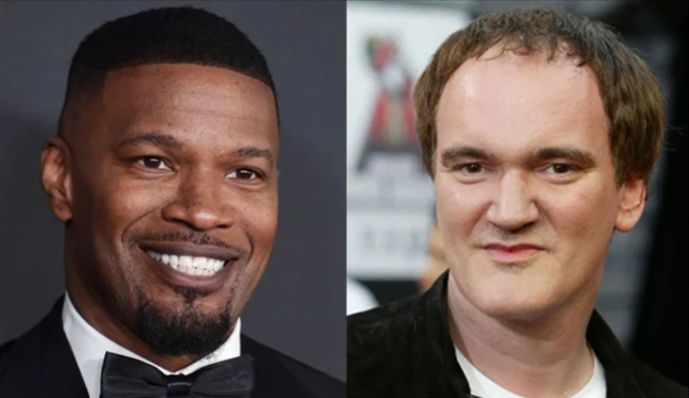
Quentin Tarantino told Jamie Foxx he was ‘too cool’ for slave role in ‘Django Unchained’
Legendary filmmaker Quentin Tarantino told actor Jamie Foxx that he was being “too cool” while filming his slave role in Django Unchained. Foxx played the title character, Django, a slave turned bounty hunter, in the 2012 action-western.
During an appearance on The Graham Norton Show, Foxx shared that Tarantino was strict about his performance. “I was playing a slave, but he told me I was too cool to be a slave and that I needed to let all the trappings of my real life go. Once I stripped all those things away, the role made sense,” Foxx explained.
Set in 1858 Texas, where the slave trade flourished, Django Unchained follows Django’s journey after being freed by bounty hunter Dr. King Schultz, played by Christoph Waltz. Together, they embark on a mission to rescue Django’s wife, Broomhilda, portrayed by Kerry Washington, from a brutal plantation owner, Calvin Candie, played by Leonardo DiCaprio. The film also features Samuel L. Jackson as Stephen, Candie’s loyal and sinister servant.
While Django Unchained includes several intense and disturbing scenes—such as one where a slave is mauled by dogs as punishment for attempting to escape—Tarantino has stated that these portrayals, while harrowing, don’t fully capture the extreme horrors of slavery. Speaking on NPR’s Fresh Air program, Tarantino said, “If I were to show it a thousand times worse, to me, that wouldn’t be exploitative, that would just be how it is. If you can’t take it, you can’t take it.”
Tarantino also reflected on one of his favorite scenes from the film—where a group of Ku Klux Klan members argue over their poorly made masks. On the Empire Film Podcast, he recalled how the scene was a favorite of both audiences and studio executives. “That was everyone’s favourite scene in the script,” he said, adding that Sony executive Amy Pascal was particularly keen on it. Despite his initial concern that it might not translate as well on screen, the scene became a global favorite, generating significant laughter during screenings.